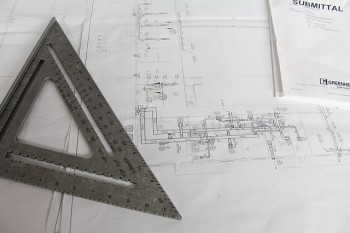Independent contractors are constantly seeking out and proposing bids in hopes of landing a construction job. Whether it is a small or large project the landscape is very competitive and requires a lot more than just presenting a proposal and knowing that you’re remarkable at what you do.
To help get you in the right lane when pursuing a private or public construction project, here are 4 common construction bidding errors and tips on how you can avoid them.
1. Unsuitably priced
The final bid price is what determines all and of course you need to be compensated for your services – but bidding too high can have you potentially losing clients. It is important to carefully read the bidding instructions and analyze and double check the amount of supplies and equipment’s that are needed to complete the project. Make sure to include equipment’s and external services that will be necessary no matter how minor for an accurate bid.
2. Inaccurate Labor Rates
Based on the location, labor rates and laws vary significantly. If you are working in a region where you need additional contractors, make sure to consult local legal centers for assistance so you can have correct rates in your bid. Consider reviewing the Davis-Bacon Act or the local union salary rates.
3. Not Exploring the Construction Site
Unfamiliarity with the construction work site when bidding is a huge set back. Assuming that the project will work right off the bat with your amazing proposal and the construction drawings may not always be ideal. Make sure to conduct your own personal due diligence to validate the correct representation of the site – this will help you to present a more realistic bid with no surprises.
4. Utilizing the Rule of Thumb
Broadly quoting prices for materials and labor is a big no no. Construction costs for projects tend to vary and may possibly be more than a per square price. By assuming the cost this increases your estimates which then creates inaccurate delivery of financials.
Go to the site, take specific measurements and analyze the conditions and resources required to tackle the project appropriately. This will help minimize any inaccuracies and possibly going over budget if chosen for the project.
Finally, reading every nook and cranny of the bid instructions and filling out the bid form completely with contingencies is vital to successfully illustrate your experiences and intentions of completing the construction project to the standards suggested.
These may seem simple enough, but it is always the little things that are forgotten and can mean the difference between a win or lose.
For more help on construction bidding check out Common Bidding Errors and Recommendations
You may also like our post: The Best Construction Bidding Websites You Should Know About


